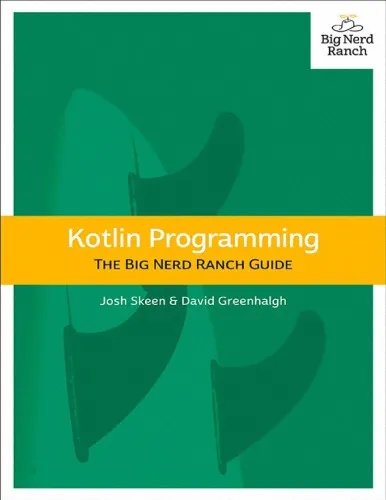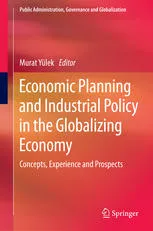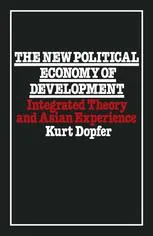Journal of African Economies
4.0
بر اساس نظر کاربران

شما میتونید سوالاتتون در باره کتاب رو از هوش مصنوعیش بعد از ورود بپرسید
هر دانلود یا پرسش از هوش مصنوعی 2 امتیاز لازم دارد، برای بدست آوردن امتیاز رایگان، به صفحه ی راهنمای امتیازات سر بزنید و یک سری کار ارزشمند انجام بدینکتاب های مرتبط:
خلاصه تحلیلی کتاب
کتاب Journal of African Economiespp.3—34 پژوهشی دقیق و مستند در حوزه اقتصاد آفریقاست که توسط نویسندگانی با تجربه و شناخت عمیق از زمینههای تجارت، تولید و توسعه نوشته شده است. متن کتاب به شکلی تحلیلی و دادهمحور تدوین شده و بر پایه بررسیهای میدانی، آمار رسمی و چارچوبهای نظری اقتصاد بینالملل استوار است.
این اثر با نگاهی چندلایه به موضوعاتی چون ساختار تولیدی قاره آفریقا، اثرات سیاستهای تجاری بر کشورهای در حال توسعه، و چالشهای هماهنگسازی زنجیرههای عرضه میپردازد. نویسندگان با استفاده از روشهای کمی و کیفی در تحلیل، توانستهاند رابطه بین اصلاحات اقتصادی و رشد پایدار را بررسی کنند.
یکی از نقاط قوت این کتاب، توجه به تفاوتهای منطقهای در آفریقاست که باعث شده نتیجهگیریها برای سیاستگذاران و محققان دارای عمق و کاربرد عملی باشد.
نکات کلیدی و کاربردی
یکی از کلیدواژههای مهم در این کتاب «تجارت بینالملل» است که در ارتباط با اقتصادهای نوظهور آفریقا مورد بررسی قرار گرفته و نشان میدهد چگونه ادغام در بازار جهانی میتواند هم فرصتساز و هم تهدیدآفرین باشد.
کتاب بر اهمیت دادههای دقیق در سیاستگذاری اقتصادی تأکید میکند و نشان میدهد که بدون تحلیل آماری معتبر، تصمیمات اقتصادی میتواند ناکارآمد یا حتی مضر باشد. این رویکرد برای پژوهشگران و دانشگاهیان اهمیت ویژه دارد.
از منظر کاربردی، خواننده میآموزد که چگونه میتوان روابط بین صادرات و رشد اقتصادی را در بستری بومی تحلیل کرده و سیاستهای متناسب را طراحی نمود.
نقلقولهای ماندگار
این کتاب مملو از جملات تأملبرانگیزی است که روح پژوهشگری و حساسیت نسبت به جزئیات اقتصادی را بهخوبی نشان میدهد.
اقتصاد نه فقط علم عددها، که هنر درک واقعیتهای انسانی است. نامشخص
آفریقا، قارهای است که آینده اقتصاد جهانی را به رنگ تازهای درمیآورد. نامشخص
چرا این کتاب اهمیت دارد
اهمیت کتاب Journal of African Economiespp.3—34 در آن است که با دیدگاهی علمی و مبتنی بر شواهد، شکاف اطلاعاتی موجود در حوزه اقتصاد آفریقا را پر میکند. بسیاری از منابع اقتصاد جهانی تمرکز خود را بر کشورهای صنعتی یا آسیای شرقی میگذارند، اما این کتاب بهویژه برای فهم دینامیک اقتصادی قاره آفریقا ضروری است.
برای سیاستگذاران، این کتاب راهنمایی عملی در زمینه ارزیابی و اصلاح سیاستهای تجاری و تولیدی است. برای پژوهشگران، منبعی غنی از دادهها، چارچوبهای تحلیلی و مطالعه موردی فراهم میآورد. این مزیتها، همراه با روششناسی دقیق، باعث شده اثر مورد بحث به منبعی ارزشمند بدل شود.
نتیجهگیری الهامبخش
خواندن کتاب Journal of African Economiespp.3—34 فرصتی است برای هر علاقهمند به فهم عمیق اقتصاد قاره آفریقا. این اثر نهتنها رویکردهای علمی و عملی را به هم پیوند میدهد، بلکه راهی روشن پیش پای پژوهشگران، سیاستگذاران و حتی فعالان اقتصادی قرار میدهد تا با دیدی جامعتر تصمیمسازی کنند.
اگر به دنبال گسترش چشمانداز خود در حوزه اقتصاد بینالملل و شناخت ظرفیتهای توسعه در بازارهای نوظهور هستید، این کتاب را مطالعه کنید و یافتههایتان را با دیگران به اشتراک بگذارید؛ چرا که دانش، تنها زمانی قدرتآفرین است که تقسیم شود.
Analytical Summary
The Journal of African Economiespp.3—34 presents a rigorous exploration of economic patterns, trade behaviours, and policy frameworks shaping the development trajectory of African nations. Authored by Tybout, J.; Gauthier, B.; Navaretti, G. B.; and de Melo, J., this segment of the journal represents a deep analytical dive into the mechanisms that drive growth and the constraints that hinder it, particularly in the context of global market integration.
Drawing on empirical research, econometric modelling, and comparative case studies, the work examines how macroeconomic reforms, external trade shocks, and domestic policies contribute to national and regional outcomes. It is attentive to both the theoretical underpinnings of trade liberalization and the tangible realities observed across African markets, ensuring a balanced view that resonates with scholars and policy practitioners alike.
While information on the specific publication year is unavailable due to no reliable public source, the relevance of the themes explored transcends temporal bounds, making the findings applicable to contemporary debates. The authors’ approach is both methodical and nuanced, offering readers a layered perspective on African economic challenges and opportunities.
Key Takeaways
This section distills the most critical lessons from Journal of African Economiespp.3—34, serving as a strategic framework for academics, analysts, and decision-makers.
First, trade liberalization in African economies must be accompanied by targeted policy support to ensure sustainable growth. Second, data-driven strategies, rooted in local realities, enhance the effectiveness of reforms. Third, regional cooperation amplifies the impact of economic measures, promoting stability and competitiveness. Fourth, the integration of African markets into global value chains requires addressing both infrastructural and governance deficits. Finally, the authors stress the importance of contextualizing economic models to reflect the diversity of African contexts.
Memorable Quotes
Throughout the Journal of African Economiespp.3—34, certain observations stand out for their clarity and enduring relevance.
"Trade policy without domestic capacity-building is a recipe for uneven development." Unknown
"Economic models must serve the realities on the ground, not just theoretical elegance." Unknown
"Regional collaboration is not optional; it is essential for resilience." Unknown
Why This Book Matters
For academics, economists, and policymakers, the import of Journal of African Economiespp.3—34 lies in its data-backed examination of African economic landscapes.
Its critical contributions include bridging theory with practice, offering empirically grounded insights into the intersection of trade, growth, and governance. The secondary themes—African economic development and international trade in Africa—are not mere add-ons, but integral lenses through which readers can interpret the broader implications of the findings.
By engaging with its content, readers gain the ability to inform research, refine policy proposals, and design interventions that are both pragmatic and innovative.
Inspiring Conclusion
In sum, the Journal of African Economiespp.3—34 is not just a scholarly work; it is a touchstone for understanding complexity in African economic systems.
Through its blend of rigorous analysis and practical relevance, the book equips readers with the conceptual tools to navigate and influence Africa’s economic future. As global and regional markets evolve, the insights contained within this text remain vital. We invite you to read, share, and discuss this work with peers, colleagues, and students, ensuring its lessons contribute meaningfully to the shaping of economic policy and research across the continent.
دانلود رایگان مستقیم
شما میتونید سوالاتتون در باره کتاب رو از هوش مصنوعیش بعد از ورود بپرسید
دسترسی به کتابها از طریق پلتفرمهای قانونی و کتابخانههای عمومی نه تنها از حقوق نویسندگان و ناشران حمایت میکند، بلکه به پایداری فرهنگ کتابخوانی نیز کمک میرساند. پیش از دانلود، لحظهای به بررسی این گزینهها فکر کنید.
این کتاب رو در پلتفرم های دیگه ببینید
WorldCat به شما کمک میکنه تا کتاب ها رو در کتابخانه های سراسر دنیا پیدا کنید
امتیازها، نظرات تخصصی و صحبت ها درباره کتاب را در Goodreads ببینید
کتابهای کمیاب یا دست دوم را در AbeBooks پیدا کنید و بخرید
1048
بازدید4.0
امتیاز0
نظر98%
رضایتنظرات:
4.0
بر اساس 0 نظر کاربران
Questions & Answers
Ask questions about this book or help others by answering
No questions yet. Be the first to ask!














